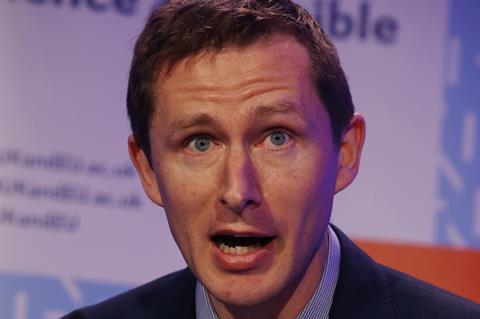The frequently cited assumption that withdrawal from the European Convention on Human Rights would imperil the Belfast (Good Friday) Agreement is mistaken, right of centre thinktank Policy Exchange argues today. The latest output from its human rights workstream, endorsed by several high-profile opponents ECHR withdrawal, states that nothing in the UK’s commitments to the peace process in Northern Ireland requires it to remain a part of the ECHR.
According to the report, only one of the two agreements making up the Good Friday Agreement refers to the ECHR, but these references all concern the domestic law of Northern Ireland and the need to provide assurances to the different parties that they will be secure from abuse of devolved power. Such assurances could be provided for in several ways after a UK withdrawal from the ECHR, such as by maintaining the Human Rights Act and the Northern Ireland Act in relation to the political institutions of Northern Ireland, the report argues.
Meanwhile, nothing in the 2023 Windsor Framework agreement prohibits the UK from withdrawing from the ECHR. 'The references to the ECHR in the UK-EU Trade and Cooperation Agreement confirm moreover that the EU (including Ireland) has in effect agreed that the UK is entitled to leave the ECHR and that it would not breach the Belfast Agreement if it left.'
One of the report's authors, Professor Richard Ekins, head of Policy Exchange’s Judicial Power Project and a supporter of withdrawal, said: 'Public debate about human rights law reform has been distorted by the repeated assertion that withdrawal from the ECHR would breach the Belfast (Good Friday) Agreement. In fact, neither the letter nor the spirit of the Belfast Agreement in any way requires the UK – or Ireland – to remain within the ECHR. And the agreements reached with the EU after Brexit confirm the point, leaving it open to the UK to choose to leave the ECHR.'

Labour former minister Jack Straw, a veteran supporter of ECHR membership, said: 'I am not persuaded that the UK needs to withdraw from the ECHR the better to deal with the unacceptable number of unlawful and unfounded asylum seekers. Rather, I believe that we should de-couple our own human rights legislation from the convention (as other European countries have done). But the debate about our future relationship with the ECHR, and its parent body, the Council of Europe, should be conducted on its merits.'
The Policy Exchange paper, he said, 'helps to clear the ground for that debate'.
A Conservative former justice minister, Lord Faulks (Edward Faulks KC), added: 'It seems, in the current climate, that a political party that refuses to leave the ECHR or concludes that it is “too difficult” is unlikely to gain the support of the electorate at the next election. The authors of this paper have provided detailed analysis as to how the “difficulties” involved are, in fact, no impediment to a decision to leave.'
This article is now closed for comment.



























24 Readers' comments